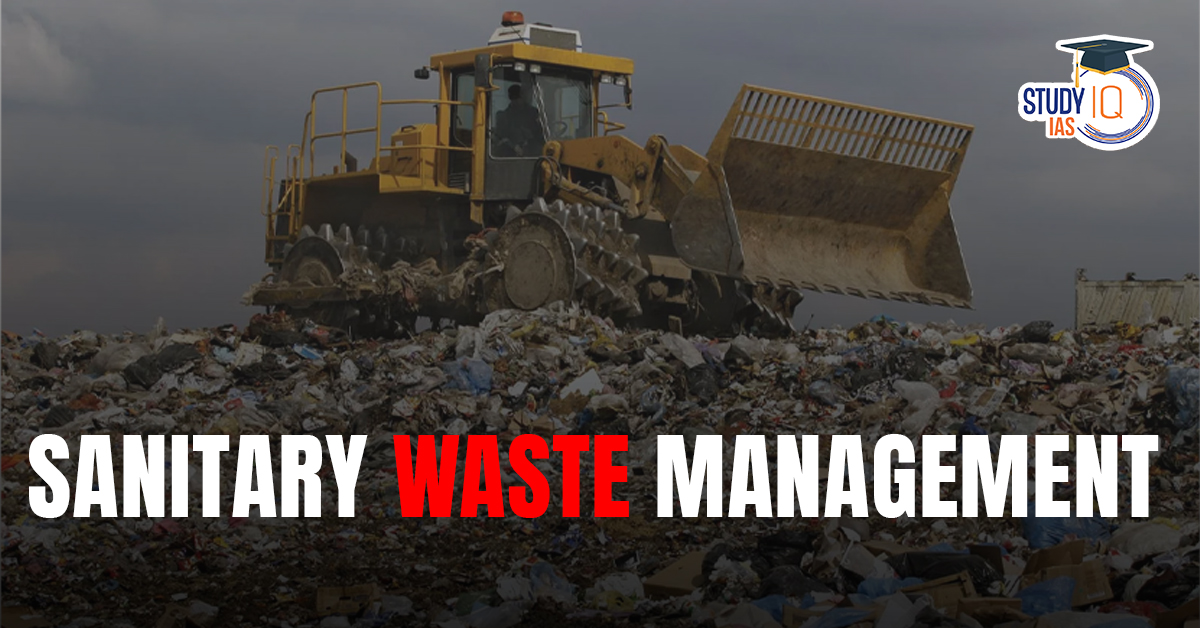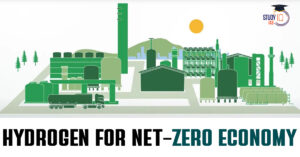Table of Contents
Context: Sanitary waste disposal remains a neglected aspect of solid waste management in India, leading to severe environmental degradation, health hazards, and social stigma. Karad, a small city in Maharashtra’s Satara district, offers a replicable model by achieving 100% segregation, collection, and processing of sanitary and biomedical waste.
Key Features of the Karad Model of Sanitary Waste Management
- Daily Waste Collection: 300–350 kg of sanitary waste collected daily from households, clinics, and hospitals.
- Garbage collection vehicles are equipped with separate bins for sanitary waste.
- Community Engagement & Awareness: Targeted IEC campaigns, workshops, and public outreach to destigmatise sanitary waste.
- Formation of women’s groups to promote safe disposal practices.
- Red bins are placed in public toilets to ensure proper disposal by women.
- School Initiatives: Promotion of sanitary pad vending machines and incinerators.
- Encouragement of hygienic disposal habits among adolescent girls.
- Infrastructure & Disposal Mechanism: Waste sent to a Common Biomedical Waste Treatment Facility (CBWTF) established via Public-Private Partnership (PPP) with the Karad Hospital Association.
- Incineration at 1200°C ensures complete disinfection and minimises contamination.
- Real-time emission monitoring is linked to the State Pollution Control Board (SPCB) systems.
Innovative Approaches for Sanitary Waste Management
- PPP Model: Reduced operational costs for the Municipal Council; private partner handles treatment.
- Women-Centric Approach: Empowered women as change agents in waste awareness and management.
- High-Tech Monitoring: Continuous emissions monitoring ensured adherence to environmental standards.
Impact
- Public Health Benefits: Reduced risk of disease transmission and safer working conditions for sanitation workers.
- Environmental Gains: Prevention of open dumping and groundwater contamination.
- Social Upliftment: Breaking taboos, improving menstrual hygiene awareness, especially among women and adolescents.
- Scalable & Replicable: Offers a viable template for other small and mid-sized urban areas.
Takeaways for Governance and Policy
- An integrated approach combining awareness, infrastructure, and institutional collaboration can effectively tackle sensitive waste issues.
- PPP models are viable for specialised waste treatment services.
- Community participation and gender-sensitive strategies enhance the success and sustainability of urban sanitation programs.


 International Big Cat Alliance (IBCA), O...
International Big Cat Alliance (IBCA), O...
 Hydrogen For Net-Zero Economy, Governmen...
Hydrogen For Net-Zero Economy, Governmen...
 Mantis Shrimp - Latest Research News and...
Mantis Shrimp - Latest Research News and...





















